The House and Senate took the first steps two weeks ago towards an eventual repeal of parts of the Affordable Care Act (ACA). At the same time, significant uncertainty as to how efforts proceed from here remains. There are disagreements among congressional Republicans on virtually every component of a path forward, including a timeline, the connections between a repeal bill and an approach to replacement, and what, if any, components of the law should be preserved.
One important set of actors, however, has already begun to weigh in on the process: several of the nation’s Republican governors. In particular, a number—including Charlie Baker of Massachusetts, Rick Snyder of Michigan, John Kasich of Ohio, Asa Hutchinson of Arkansas, and Brian Sandoval of Nevada—have voiced concerns about eliminating the Medicaid expansion. Together, these governors—several of whom recently met with members of the Senate Finance Committee to discuss the law—lead roughly one third of the 16 states that chose to expand Medicaid and currently have Republican executives. According to new data from the Kaiser Family Foundation, they represent roughly 2.2 million individuals who enrolled in Medicaid in 2015 thanks to the ACA’s expansion, or roughly 6 percent of the total population in these states. (By comparison, the national average for states for which Kaiser was able to obtain data is roughly 7 percent of a state’s population.)
In the case of Medicaid, as political scientist Shanna Rose has demonstrated, Republican governors have a long history of taking a different tack than their national counterparts. One source of this state-level variation involves the ability of the Secretary of Health and Human Services to waive provisions of federal law, at a state’s request, to allow for Medicaid pilot, or demonstration, programs. Beginning in earnest during the Reagan administration and escalating in particular under Clinton, governors nationwide have experimented with service delivery through waivers. Some feared that this experimentation could lead to restricted access, but research by Frank Thompson and Courtney Burke finds that, pre-ACA, governors more often than not used section 1115 Medicaid waivers to expand access for low-income Americans. This historical trend has continued throughout the ACA era, as governors have bargained with the Obama administration to secure waivers that expand access to Medicaid in their states.
A consequence of subnational flexibility in implementing federal health care programs is that discrepancies may arise between the position that the party in Congress takes on a particular law and the approach that governors in the same party take to implementing the law. For many Republicans in Congress, the ACA is a political punching bag, anathema to their views of the federal government’s role in American society. On the other hand, as discussed above, a number of Republican governors have taken advantage of the opportunity provided under the ACA to expand Medicaid access to millions of their constituents. While Republican governors’ behavior may seem at odds with the polarized national dialogue surrounding the ACA, it is in fact broadly consistent with how governors have responded to opportunities like this in the past.
Social scientific research on which states have chosen to expand Medicaid also helps illustrate why state and national Republicans may not agree on the question of whether or not to repeal that portion of the ACA. Partisan politics is part of the story of which states expanded Medicaid, but by no means all of it. Work by political scientists Larry Jacobs and Timothy Callaghan, for example, suggests that the existing politics of Medicaid in Republican-controlled states, including the pre-expansion generosity of benefits and administrative capacity, help explain why some Republican-controlled states chose to opt in to the expansion. Other work highlights the role of state interest group coalitions in helping to explain state-level outcomes; in particular, scholars Alexander Hertel-Fernandez, Theda Skocpol, and Daniel Lynch find that states where strong organized business interests outweigh the influence of ideologically conservative organizations were more likely to expand the program. (Notably, researchers have found little evidence that, after accounting for gubernatorial and state legislative partisanship, the size of a state’s uninsured population drove Medicaid expansion decisions.)
If state-level political factors helped explain why some Republican states expanded Medicaid while others did not, what does that mean for the debate over keeping the expansion going forward? Certainly, governors may well take a position on maintaining the status quo based on the same internal political dynamics that helped influence adoption in the first place. In states where the interest group community favored expansion, for example, we may see Republican governors fight harder to maintain the expansion. Also present, however, are electoral concerns: there are 27 states with Republican governors that will hold gubernatorial elections in 2017 or 2018. Of these, 13 are in states where Medicaid was expanded. Half of these races (IL, NH, OH, MI, NV, NM, and NJ) have been rated competitive by the Cook Political Report. This stands in contrast to the current electoral landscape for Senate Republicans, where only two Republican-held seats are considered competitive at this point.
For this difference in the electoral landscapes faced by Republican governors and their national counterparts to matter in the current debate over the Medicaid expansion, the former need to believe that their voters will blame them for the actions of the latter. Evidence from political science is mixed on whether Republican governors are right to fear this kind of attribution error. One line of work argues that voters are capable of correctly attributing blame in the federal system to the level of government actually responsible for an action. Other research, however, suggests that voters frequently hold accountable the ‘wrong’ branch of government; work by Steven Rogers, for example, demonstrates that shifts in presidential approval have a major effect on state legislative elections.
This question—of if, and how, Republican governors’ electoral incentives will drive them to break with their national co-partisans—may well extend to other issues on Congress’s agenda. Congress, after all, often has an incentive to let states implement federal policies differently, and states frequently have a corresponding reason for taking advantage of that flexibility. These incentives, at both the national and state levels, can create unexpected politics. Moreover, this dynamic is not specific to the politics of health care in general or the ACA in particular. Drawing on the relevant political science literature, we plan to continue exploring, across several policy areas, whether and how Republican governors advocate for policies at odds with their congressional counterparts in a series of blog posts in the year to come.
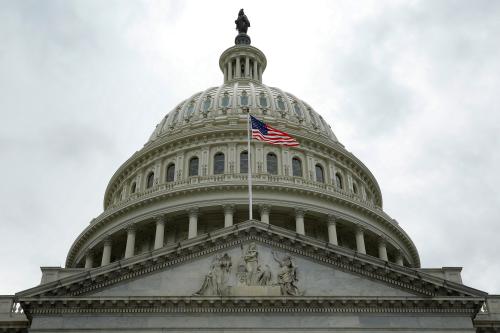
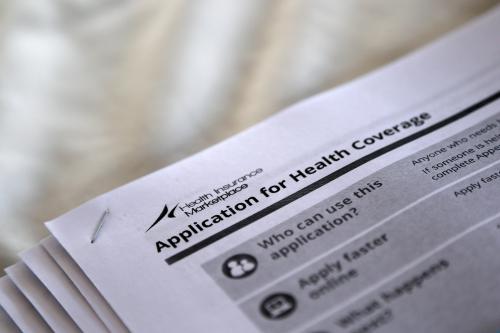
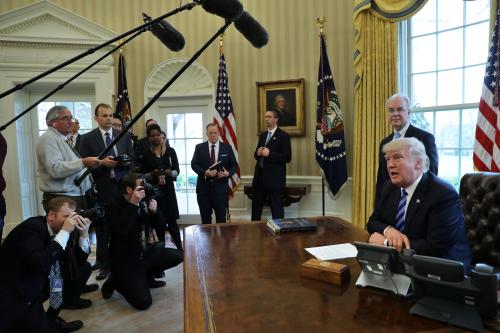
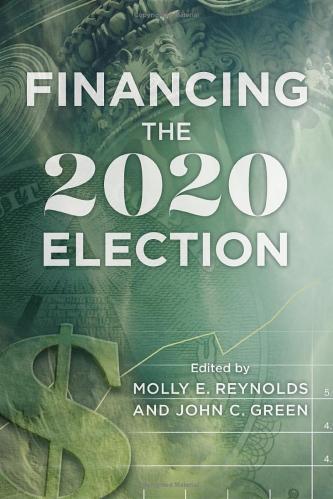
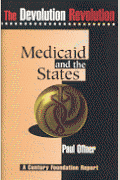
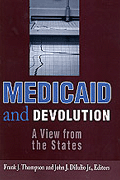


Commentary
Republican governors have a stake in keeping the Medicaid expansion. Will congressional Republicans listen?
January 24, 2017